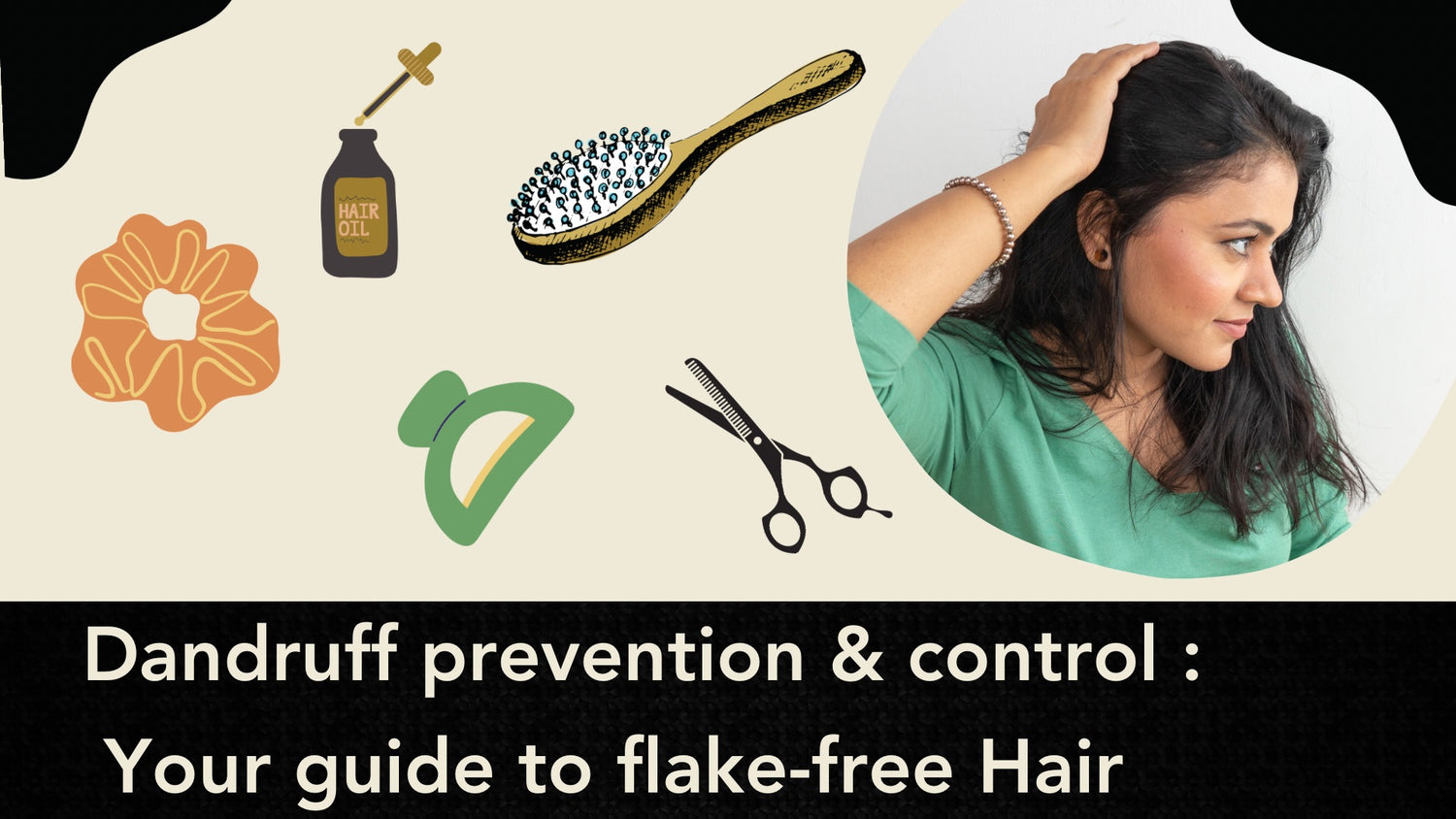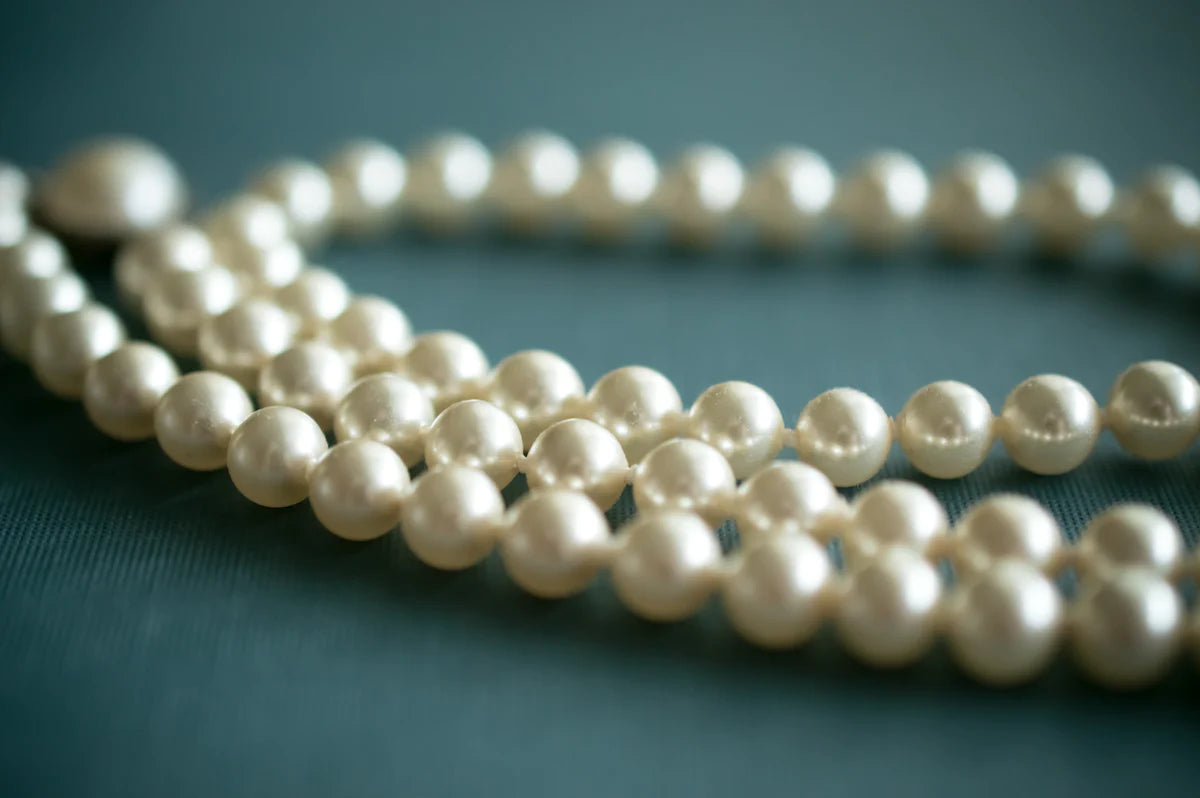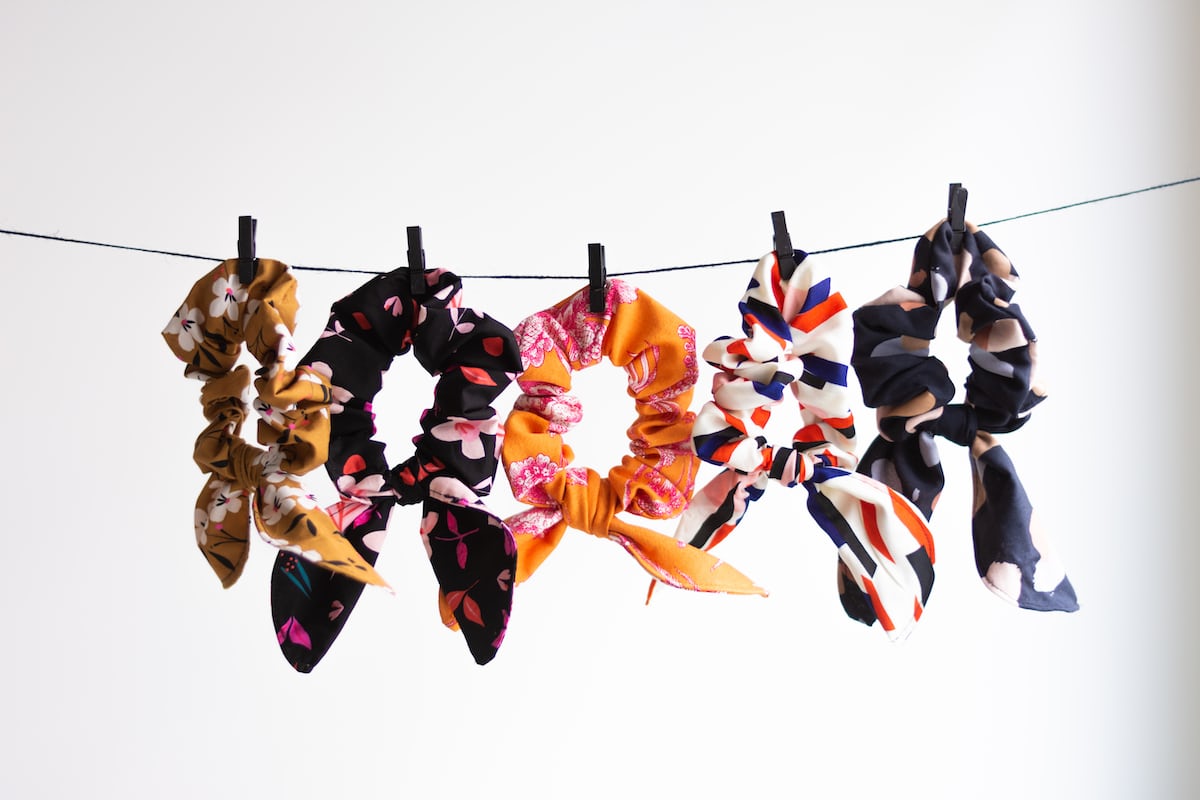Are those pesky white flakes on your shoulders making you feel embarrassed and self-conscious? If yes, you're not alone. Dandruff affects millions of people worldwide, causing itching, irritation, and even lowered self-esteem. But fear not! In this comprehensive blog, we'll delve into the world of dandruff, understand its causes, and explore effective prevention and control strategies to achieve flake-free, healthy hair. So, let's get to the root of the problem!
Understanding Dandruff
Dandruff is a common scalp condition characterized by the shedding of dead skin cells in the form of white flakes. While it is harmless, it can be bothersome and lead to discomfort. The primary cause of dandruff is an overgrowth of a yeast-like fungus called Malassezia, which feeds on the natural oils produced by your scalp. This overgrowth triggers an inflammatory response, leading to the accelerated shedding of skin cells, resulting in characteristic flakes.

Disadvantages of Dandruff
While dandruff may seem like a minor inconvenience to some, it can have more profound implications on your scalp health, appearance, and overall well-being. Those unsightly white flakes not only cause discomfort but may also lead to several disadvantages that can affect both your physical and emotional health. Let's explore some of the significant drawbacks of dandruff and why it's essential to address this common scalp condition promptly.
- Scalp Irritation and Itching: One of the primary disadvantages of dandruff is the persistent itching and irritation it causes. The excessive shedding of dead skin cells triggers an inflammatory response, leaving your scalp feeling dry, red, and itchy. The constant urge to scratch can damage the scalp further and lead to the formation of open sores, increasing the risk of infection.
- Social Embarrassment: Dandruff can be socially embarrassing, causing feelings of self-consciousness and discomfort. The visible flakes on your hair and shoulders can draw unwanted attention, making you feel embarrassed in social settings. This emotional impact may lead to reduced self-confidence and avoidant behavior, impacting your social life and interactions.
- Impact on Hair Appearance: Dandruff can take a toll on the appearance of your hair. The flakes may become trapped in your hair strands, making them look dull, dirty, and unkempt. Additionally, the constant itching and scratching can damage your hair, leading to breakage and hair loss.
- Psychological Effects: The persistent presence of dandruff can have psychological effects on individuals. It may lead to feelings of frustration, stress, and anxiety, especially if conventional treatments prove ineffective. The negative impact on self-esteem and body image can affect various aspects of life, including personal relationships and professional confidence.
- Flare-ups and Exacerbation: Dandruff is a chronic condition, and without proper management, it can lead to frequent flare-ups. These flare-ups often coincide with certain triggers, such as stress, changes in weather, or the use of certain hair products. The recurring nature of dandruff can make it challenging to control and may require consistent preventive measures.
- Scalp Infections: In some cases, untreated or severe dandruff can pave the way for more severe scalp infections. Scratching the irritated scalp can create openings for harmful bacteria to enter, leading to conditions like folliculitis or seborrheic dermatitis. These infections can be uncomfortable, and painful, and may require medical intervention.
- Impact on Hair Growth: Persistent dandruff and the resulting scalp inflammation can interfere with the normal hair growth cycle. The unhealthy scalp environment may inhibit hair follicle function, leading to hair thinning and slow hair growth over time.

While dandruff is often viewed as a common and benign condition, the disadvantages associated with it should not be overlooked. Beyond the visible flakes, dandruff can cause significant scalp discomfort, and emotional distress, and even impact your hair's overall health and appearance. To mitigate these disadvantages, it's essential to adopt a proactive approach to managing dandruff through regular scalp care, using appropriate anti-dandruff treatments, and seeking professional advice when necessary. By taking control of your dandruff, you can promote a healthy scalp, enhance your self-confidence, and enjoy a flake-free, more comfortable life. Let us dive into some prevention methods and control techniques for the same.
Dandruff Prevention Tips
- Regular Scalp Care: Keeping your scalp clean is crucial in preventing dandruff. Use a mild, anti-dandruff shampoo at least twice a week to control the fungus growth and wash away excess oil and dead skin cells. When shampooing, gently massage your scalp to enhance blood circulation and remove any product buildup.
- Balanced Diet: A healthy diet rich in essential nutrients plays a pivotal role in promoting a healthy scalp and preventing dandruff. Incorporate zinc, B vitamins, and omega-3 fatty acids into your daily meals. Foods like fish, nuts, seeds, fruits, and vegetables provide these nutrients and help keep your scalp nourished.
- Stress Management: Stress can exacerbate dandruff symptoms. Engage in stress-relief activities such as yoga, meditation, or hobbies you enjoy to keep stress levels in check. Additionally, ensure you get enough sleep as it is essential for overall well-being, including scalp health.
- Avoid Harsh Hair Products: Certain hair care products like gels, sprays, and harsh chemicals can irritate your scalp, worsening dandruff. Opt for milder, sulfate-free products that are gentle on your scalp. Look for products with natural ingredients like aloe vera or tea tree oil, which have soothing properties for the scalp.
- Scalp Massage: Regular scalp massages increase blood circulation and can help prevent dandruff. Use natural oils like coconut or tea tree oil for added benefits. Warm the oil slightly, massage it into your scalp, and leave it on for at least 30 minutes before washing your hair.
Dandruff Control Strategies
- Antifungal Treatments: Over-the-counter shampoos containing ketoconazole, selenium sulfide, or zinc pyrithione are effective in controlling dandruff. These ingredients work by combating the fungus causing dandruff, reducing inflammation, and slowing down cell turnover. If your dandruff persists or worsens, consider consulting a dermatologist for prescription-strength solutions.
- Apple Cider Vinegar: Its natural acidity can help restore the scalp's pH balance, reducing dandruff-causing fungus. Mix equal parts of water and apple cider vinegar, apply it to your scalp, leave it on for a few minutes, and rinse thoroughly. However, as apple cider vinegar can be drying, use it sparingly and discontinue use if it causes excessive dryness.
- Tea Tree Oil: Known for its antifungal properties, tea tree oil can be mixed with carrier oils and applied to the scalp to combat dandruff. Remember to patch-test before using to avoid any allergic reactions. Tea tree oil can be potent, so use it in moderation.
- Aloe Vera Gel: Aloe vera possesses soothing and anti-inflammatory properties that can alleviate scalp irritation caused by dandruff. Apply fresh aloe vera gel directly to your scalp and leave it for 30 minutes before rinsing. Aloe vera can also help restore moisture to your scalp, reducing dryness and flaking.
- Limit Hot Water Showers: Hot water strips away natural oils, leaving your scalp dry and vulnerable to dandruff. Use lukewarm water for hair washes instead, and consider a final rinse with cold water to help seal moisture into your scalp.
Conclusion
Dandruff might be a persistent nuisance, but with the right prevention and control strategies, you can bid farewell to those white flakes and reclaim your confidence. Remember to maintain a healthy scalp care routine, follow a balanced diet, and manage stress levels to keep dandruff at bay. If the problem persists, consult a dermatologist for a proper diagnosis and personalized treatment. Embrace these tips, and say hello to a flake-free and healthy mane! Your hair will thank you for it!
And if you feel the need, you can use hair extensions or wigs during your treatment phase. This way you can easily continue doing your prevention and control for dandruff while still sporting healthy hair. Gemeria offers a wide range of hair extensions and wigs for this purpose!














